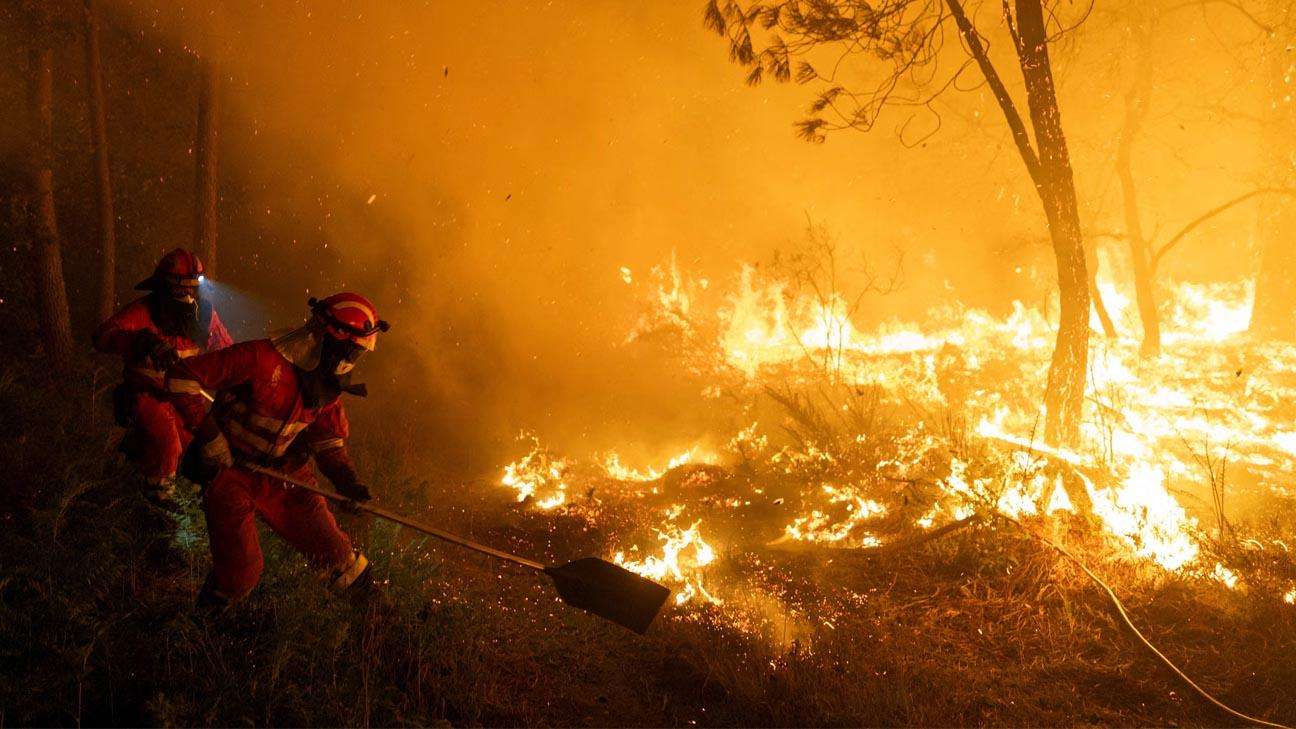Smoke from wildfires is significantly more lethal than previously estimated, with deaths from short-term exposure to fine particulate matter (PM2.5) underestimated by nearly 93%, according to new research.
The study found that between 2004 and 2022, about 535 people died each year in Europe from inhaling wildfire-related PM2.5. Standard models, which treat these particles as equally toxic to those from traffic or other sources, predicted only 38 deaths annually.
Wildfires raging across southern Europe this year highlight the threat. EU fire monitors report 895,000 hectares (2.2m acres) have already burned in 2025—twice the two-decade average—releasing unprecedented levels of pollution.
“Although wildfires occur less frequently, their particles are more harmful,” said Prof. Cathryn Tonne of the Barcelona Institute for Global Health (ISGlobal).
Dirty air is already one of the leading threats to human health. A global study last December linked 1.53 million deaths annually to wildfire smoke. ISGlobal’s analysis, focusing on short-term impacts, combined mortality data from 32 European countries with wildfire pollution estimates. It found that wildfire smoke raised death risks in the week following exposure: all-cause mortality rose 0.7% for every extra microgram of PM2.5 per cubic metre of air, while respiratory deaths climbed 1% and cardiovascular deaths 0.9%.
“These results are alarming as climate change drives more extreme wildfires,” said Prof. Antonio Gasparrini of the London School of Hygiene & Tropical Medicine, who was not part of the study.
While flames kill directly, toxic smoke often claims more unnoticed lives—and can travel hundreds of kilometres. “Far more people are exposed to smoke than to the fire itself,” Tonne noted.
Researchers acknowledged some limits, such as difficulty separating wildfire PM2.5 effects from ozone pollution. Still, the findings were consistent.
Earlier research suggests over 1 billion people are exposed to wildfire smoke indoors each year, where pollution can triple even with windows closed. Air purifiers can help but remain costly.
With climate change fuelling fire risk, the Iberian Peninsula has been hit hardest in 2025, though experts warn the “fire belt” will spread north. “This is not just a Mediterranean crisis—it’s a European one,” said Victor Resco de Dios, forestry engineer at the University of Lleida.


_4.jpg)
_2.jpg)




.svg)

.jpg)
_1.jpg)
_1.jpg)
_3.jpg)